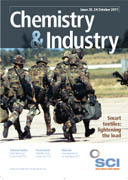Developments in the Indian pharmaceutical market have left public health experts and humanitarian aid organisations concerned about access to affordable medicines in developing countries.
According to the Indian Health Ministry, 95% of drugs produced in India are generics. In the past two years four major Indian pharmaceutical companies – Piramal Healthcare, Ranbaxy, Shanta Biotech and Dabur Pharma – were bought by US headquartered Abbott Laboratories, Japan’s Daiichi Sankyo, the UK’s Sanofi Aventis and Germany’s Fresenius Kabi, respectively.
‘The continuing acquisitions of Indian companies by multinationals could make medicines more expensive for Indians,’ said C. D. Tripathi, head of the department of pharmacology at Safdarjung Hospital in New Delhi. ‘They [the multinational corporations, (MNCs)] will stop manufacturing generic drugs and will promote the sale of their in-house brands, which would increase the prices.’
Nearly 250 drugs are listed by the Indian government as ‘essential drugs’ under the National Rural Health Mission. ‘Essential drugs need to be available at cheap rates and, while local companies being taken up by MNCs is good business, it casts a shadow over the supply of low-cost generics. We need safeguards against patent regimes which could deprive millions of life saving drugs,’ said Vandana Roy, assistant professor, department of pharmacology in one of India’s largest hospitals, Maulana Azad Medical College.
In addition to this development, new trade conditions being negotiated by the US and EU could make it difficult for poorer nations to import Indian made cheaper versions of drugs. Conditions like data exclusivity and patent extension considered in the Free Trade Agreement (FTA) with the EU and US go beyond the World Trade Organization’s existing global patent agreement TRIPS. ‘While these issues have already been addressed by TRIPS, the EU and US are trying to impose more conditions as they are worried about Indian drugs flooding their markets. In bilateral agreements – where there is more scope for arm-twisting – these countries are imposing a lot of hurdles on the Indian markets, which could make essential drugs very expensive,’ said C. M. Gulati, editor of Monthly index of medical specialities, India.
In 2008, the Indian government started the Jan Aushadi Campaign – Quality Medicines at Affordable Prices – to ensure easy availability of drugs at cheaper rates. Under this initiative, quality unbranded generic drugs of equal therapeutic value to their branded, expensive counterparts are sold from Jan Aushadi Stores.
These stores currently supply 231 essential drugs medicines from 44 stores opened in the states of Punjab, Haryana, Uttarakhand, Orissa, Rajasthan, Andhra Pradesh, Chandigarh and Delhi.





